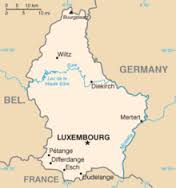
Breaking News
 Pam Bondi says that if we prosecute everybody in the Epstein Files, the whole system will collapse
Pam Bondi says that if we prosecute everybody in the Epstein Files, the whole system will collapse
 Dr Pollan at Harvard has cured schizophrenia using keto diet
Dr Pollan at Harvard has cured schizophrenia using keto diet
 We are winning. Big Pharma is finding it too difficult to get new vaccines approved under Trump
We are winning. Big Pharma is finding it too difficult to get new vaccines approved under Trump
 Abortion drugs discovered in Bill Gates' vaccines
Abortion drugs discovered in Bill Gates' vaccines
Top Tech News
 Drone-launching underwater drone hitches a ride on ship and sub hulls
Drone-launching underwater drone hitches a ride on ship and sub hulls
 Humanoid Robots Get "Brains" As Dual-Use Fears Mount
Humanoid Robots Get "Brains" As Dual-Use Fears Mount
 SpaceX Authorized to Increase High Speed Internet Download Speeds 5X Through 2026
SpaceX Authorized to Increase High Speed Internet Download Speeds 5X Through 2026
 Space AI is the Key to the Technological Singularity
Space AI is the Key to the Technological Singularity
 Velocitor X-1 eVTOL could be beating the traffic in just a year
Velocitor X-1 eVTOL could be beating the traffic in just a year
 Starlink smasher? China claims world's best high-powered microwave weapon
Starlink smasher? China claims world's best high-powered microwave weapon
 Wood scraps turn 'useless' desert sand into concrete
Wood scraps turn 'useless' desert sand into concrete
 Let's Do a Detailed Review of Zorin -- Is This Good for Ex-Windows Users?
Let's Do a Detailed Review of Zorin -- Is This Good for Ex-Windows Users?
 The World's First Sodium-Ion Battery EV Is A Winter Range Monster
The World's First Sodium-Ion Battery EV Is A Winter Range Monster
 China's CATL 5C Battery Breakthrough will Make Most Combustion Engine Vehicles OBSOLETE
China's CATL 5C Battery Breakthrough will Make Most Combustion Engine Vehicles OBSOLETE
Luxembourg's Bid to Become the Silicon Valley of Space Mining

In the 1980s, during the nascent days of the satellite communications industry, Luxembourg foresaw the fat cat it could become. The tiny European nation, known for steel manufacturing and tax breaks, provided financial support and passed regulations that allowed its homegrown satellite company, SES, to thrive. And because it provided that early support, one of the globe's smallest countries came to host the world's second-largest commercial satellite operator.
Luxembourg liked the way that went down. And now, 30 years later, the country is positioning itself to iterate on that plot, in a different off-Earth industry: asteroid mining.
Asteroid mining is what it sounds like: going to the solar system's hard bodies, extracting valuable resources, and using them to make something new. If humans are going to become a spacefaring species, they can't launch all the necessaries from Cape Canaveral. Instead, spacecraft needing a top-off could get fuel from asteroid ice. Humans could scrape space materials to construct orbiting hotels. Martian colonists needn't bring excessive carry-ons: They could draw building materials and H2O from their home body or an asteroid.
Bold forecasters speak of a full-on celestial supply-chain. In that version of the future, the entities that control that supply chain—doing the mining and selling the resources—will become very rich. They will, in a way, rule that final frontier. In 2016, Luxembourg began taking steps toward dominating the industry, and so potentially the flow of cash and commodities beyond Earth.
Luxembourg Is Luxe
Let us establish a few things: First, Luxembourg is rich. According to the World Bank, its per capita GDP is $101,450, compared to the US's $56,115. Second, it's tiny, smaller than Rhode Island with the population of Albuquerque, New Mexico. Historically, Luxembourg has attempted political neutrality, and nearly half of its residents are foreign nationals. If you believe the kinds of studies that quantify happiness, it is feeling good about all of the above. In fact, Luxembourg is a bit analogous to a utopian space colony: small, confined, welcoming of outsiders, well-off, politically and psychologically stable.
And while it doesn't have the weight of billions of people to throw around, Luxembourg does have capital, low taxes, small fees for sending money in and out, and customer confidentiality. That's sent many an American company to Luxembourgish (yes, a real word and the right one) banks.



